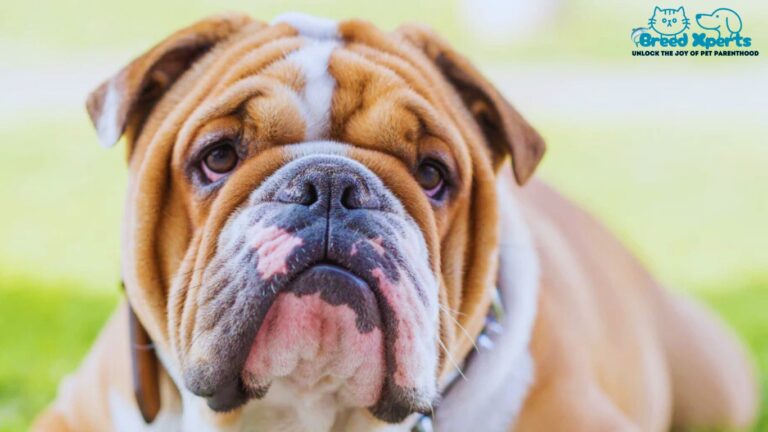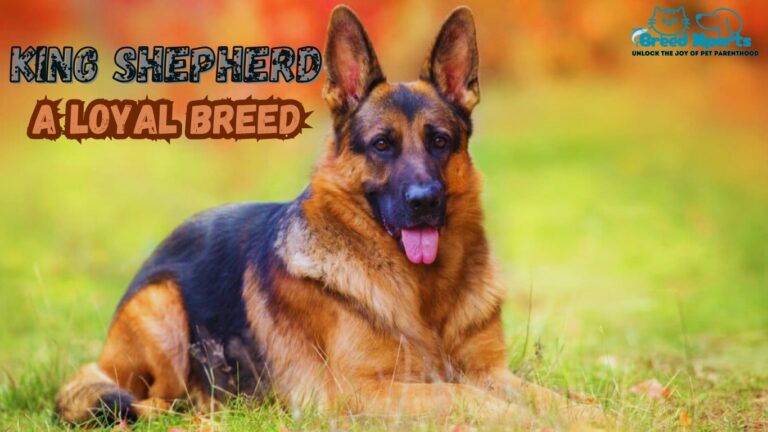American Pit Bull Terrier: Breed Guide, Temperament, and Care etc Including (10 Interesting Facts)
The American Pit Bull Terrier is a smart, strong, and friendly dog. It has a muscular body and a fighting temperament. The breed was initially used for farm work and hunting, but today it is a family friend. Pit Bulls are fun-loving and enjoy playing. They require regular exercise to remain healthy and cheerful.
Pit Bulls are social and people-friendly. They are extremely loyal to their owners and can be good with kids. They require good training and socialization when young. Due to their power, they need an experienced owner to manage them.
With the right care, an American Pit Bull Terrier may be an ideal friend. The dog is powerful and is also more affectionate and nurturing. With proper training, he turns out to be a good-mannered and devoted friend.
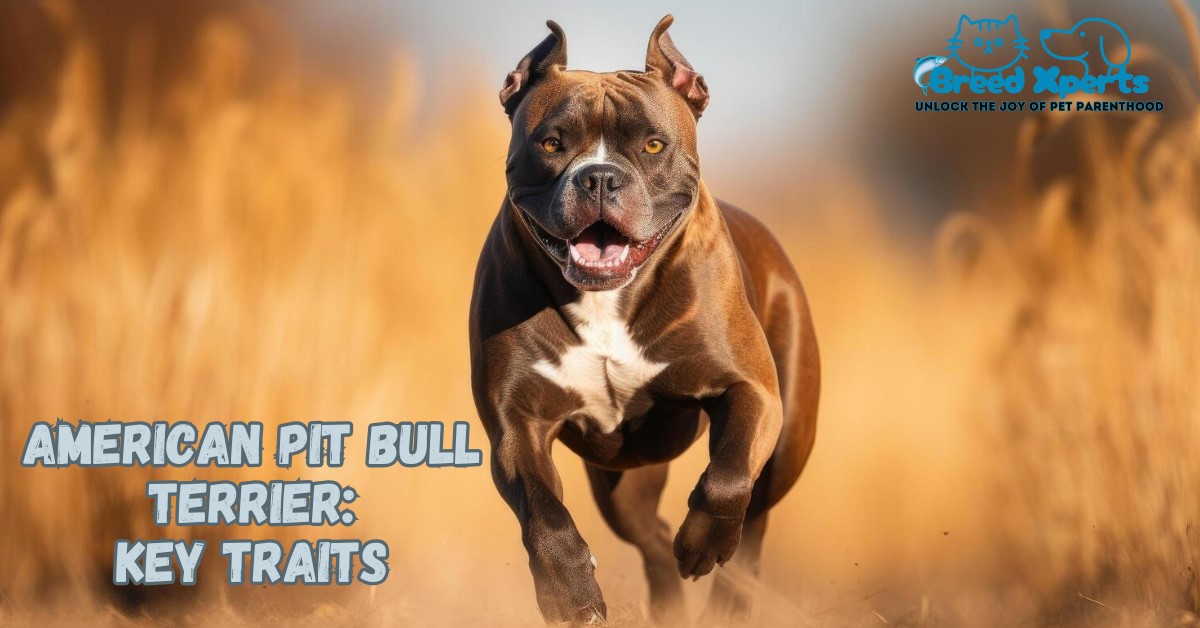
American Pit Bull Terrier: Key Traits
The American Pit Bull Terrier is a medium-sized, muscular, and energetic breed known for its loyalty and affectionate nature. Here’s a quick overview of their key traits:
- Group: Terrier Group
- Height: 17 to 21 inches (at the shoulder)
- Weight: 30 to 60 pounds (males are typically larger than females)
- Life Span: 12 to 16 years (with proper care and a healthy lifestyle)
- Personality/Temperament: Friendly, loyal, confident, and people-oriented. Pit Bulls are known for their love of human companionship and eagerness to please. They are intelligent, playful, and protective of their families.
- Energy Level: High. These dogs are active and require regular exercise, such as walks, runs, or playtime, to stay happy and healthy.
- Coat and Color: Short, smooth, and glossy coat. Common colors include black, white, brindle, blue, red, and fawn, often with markings or patches.
- Trainability: Highly trainable with positive reinforcement techniques. Early socialization and consistent training are essential for a well-behaved Pit Bull.
- Good with Kids/Families: Yes, when properly socialized. They are affectionate and protective, making them great family pets.
- Good with Other Pets: Can be, but early socialization is crucial. Some Pit Bulls may have a high prey drive, so supervision is recommended.
The American Pit Bull Terrier is a loving and devoted breed that thrives in an active, caring home. With the right training, socialization, and attention, they make wonderful companions for the right owner.
American Pit Bull Terrier Breed Overview
The American Pit Bull Terrier is a strong, medium-sized dog that is characterized by its muscular body and friendly demeanor. The breed is energetic and playful. They are devoted and bond strongly with their families.
Pit Bulls are short-haired with smooth coats of various colors like black, white, brindle, and blue. They are highly intelligent and willing to learn, hence relatively easy to train with patience and reward. It is essential in training a good-behavior dog that they are properly socialized in the early stage.
Diet & Nutrition
American Pit Bull Terriers need a balanced diet to stay active and healthy. High-quality dog food that consists of protein is ideal. Avoid fillers like corn or soy, as they do not give much in the way of nutrients.
Pit Bulls are active dogs, so they require the proper amount of calories to sustain their energy. Feed them twice a day and adjust portion sizes based on their weight, age, and activity level. Provide them with clean water consistently.
Treats are wonderful for training but should be used sparingly. Avoid feeding human foods like chocolate, grapes, and onions since they are toxic. Consult with your veterinarian to create a dietary regimen tailored to your Pit Bull’s needs.
Lifespan Of American Pit Bull Terrier
The American Pit Bull Terrier’s average lifespan is 12 to 16 years. Some can live longer if well cared for. The length of their life depends on factors like genetics, diet, exercise, and overall health. Regular veterinary check-ups help to keep them healthy.
Proper nutrition and daily exercise play a large role in their lifespan. Proper nutrition keeps their body strong, and regular exercise helps them avoid obesity and illnesses. Mental stimulation is also important in keeping them happy and active.
Common health issues in Pit Bulls include hip dysplasia, heart issues, and skin allergies. Early detection and proper healthcare can improve their quality of life. With love and care, Pit Bulls can lead a long, healthy, and happy life.
Size
The American Pit Bull Terrier is a medium-sized dog with a sturdy, muscular build. The males will usually weigh between 35 and 60 pounds and stand between 18 and 21 inches tall. Females are a bit smaller, weighing between 30 and 50 pounds and standing between 17 and 20 inches tall.
Pit Bulls have a muscular and athletic body, which provides them with strength and energy. Their bodies are well-balanced, with a broad chest and strong legs. Despite their robust build, they are very agile and run quickly. Regular exercise helps them maintain a healthy weight and muscle tone.
Even though they are of medium build, Pit Bulls are strong and durable. Their build makes them excellent working dogs and great family pets. With proper training and care, they become well-adjusted and healthy companions.
Habitat
The American Pit Bull Terrier is adaptable to many different conditions of living, but they excel in houses that have room to play. They are active and love having an area outside where they can get around and play.
Pit Bulls are friendly and enjoy the attention of people and thus prosper indoors as part of their family. They can live in apartments if they receive sufficient daily physical exercise and mental stimulation.
Safe, comfortable living with toys and a warm bed is essential. Do not leave them outside for extended periods, as they desire companionship. A contented Pit Bull feels it is part of the family.
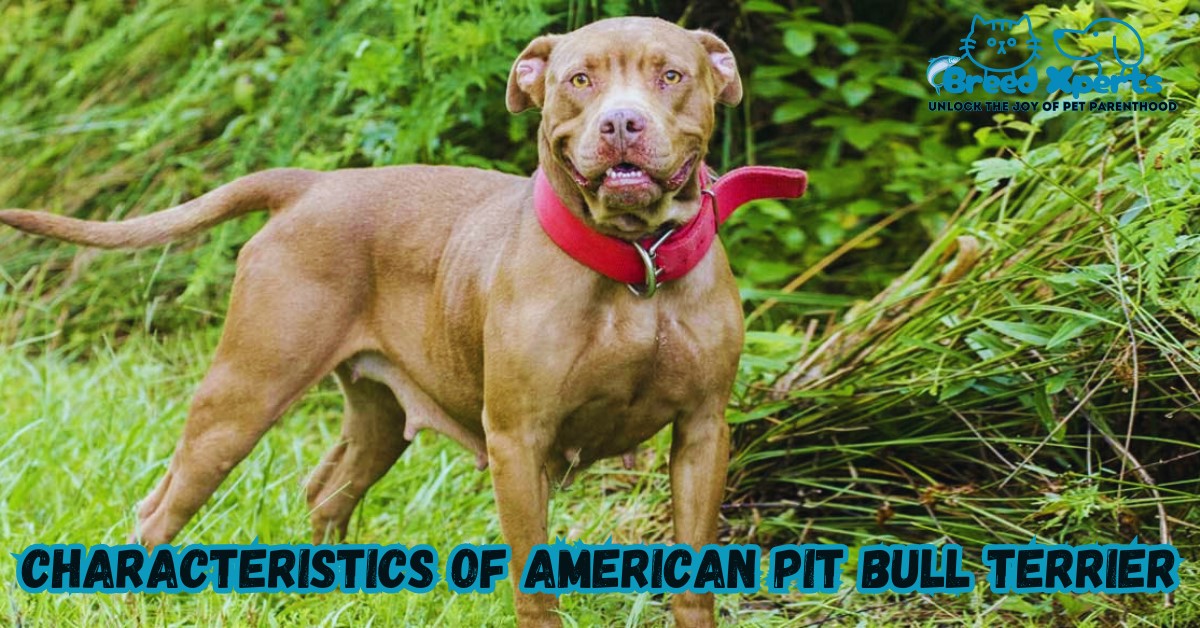
Characteristics Of American Pit Bull Terrier
The American Pit Bull Terrier is a strong, muscular dog with a confident and athletic build. They have a smooth, lustrous coat in various colors including black, brindle, white, and blue. Their expressive eyes and wide smile easily identify them.
Pit Bulls are known for their loving and loyal nature. They love people and thrive with families, often forming strong bonds with their owners. Despite their rough appearance, they are affectionate and enjoy cuddling.
This dog has a lot of energy and high intelligence. They need regular physical exercise and mental stimulation to stay happy. With proper training and socialization, Pit Bulls are well-behaved, and lively, and make great companions for active families.
Behavior and Temperament
The American Pit Bull Terrier is recognized for its sociable and approachable nature. They are very social canines that enjoy companionship and flourish with affection. Their fun-loving demeanor makes them excellent partners for families.
Pit Bulls are devoted and guarding, often establishing deep connections with their guardians. They are smart and keen to satisfy, thereby making them very receptive to training and the mode of handling. Early socialization helps them interact well with other pets and people.
Although they can be lively and occasionally headstrong, Pit Bulls are loving and gentle when brought up correctly. They take pleasure in participating in family events and require both mental and physical engagement to remain content and well-mannered.
Housing
The American Pit Bull Terrier can adjust to different living environments, but they thrive in homes that offer space to roam. A residence featuring a well-fenced yard is perfect for their energetic disposition.
Pit Bulls are social animals and like to reside indoors with their family. They flourish in the company of others and may feel anxious if separated for extended times. Ensure they have a comfortable place to unwind.
If you live in an apartment, regular walks and play are essential. Toy and cognitive stimulation would help keep them entertained as well. A happy Pit Bull is the one that feels the love and is included in family activities.
Breed History Of American Pit Bull Terrier
The American Pit Bull Terrier originated during the 19th century as bulldogs were cross-bred with terriers in England. They were initially bred to participate in bull-baiting and subsequently for farm work to herd and hunt.
Pit Bulls became popular multi-purpose working animals when they were brought to America by immigrants. They worked on farms, protected families, and even served as mascots during World War I, symbolizing courage and loyalty.
This gradually evolved into their role of being companions. As much as they are born with a tougher past, Pit Bulls are innately affectionate and loyal dogs. They are regarded as highly valued family pets today, though they still carry a misconceived reputation and most owners are to try to change this.
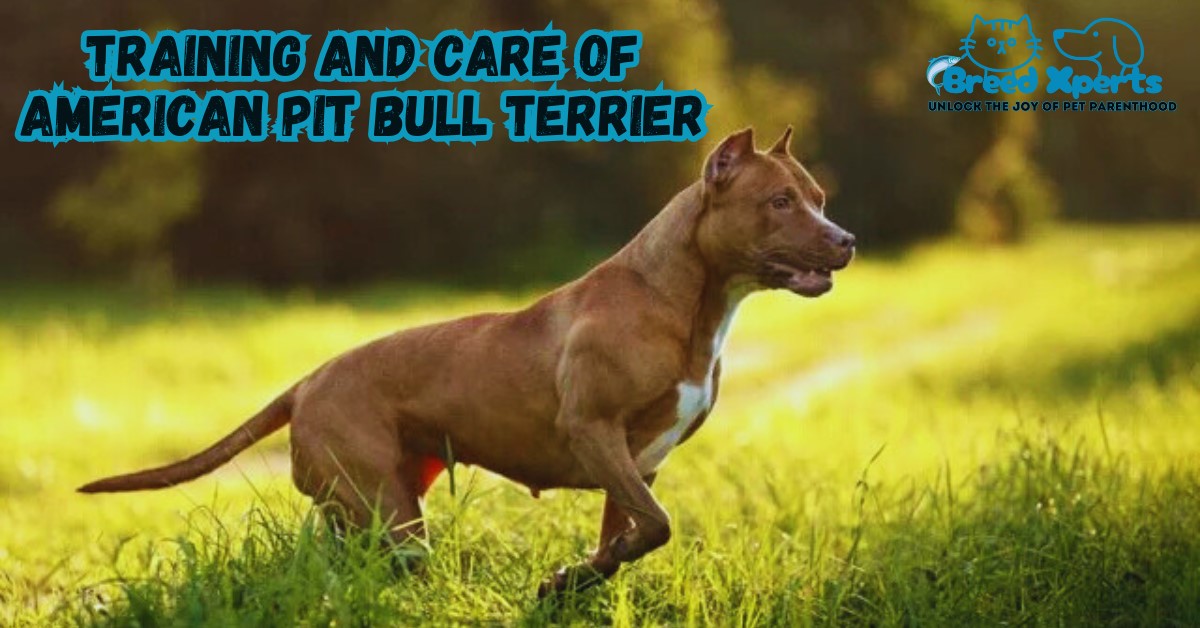
Training and Care
Teaching an American Pit Bull Terrier demands patience and steady dedication. Utilize rewards such as snacks and compliments to promote desirable behavior. Begin promptly with fundamental commands and socialization to assist them in becoming polite and self-assured dogs.
Pit Bulls are lively and require regular physical activity to remain content. Take them on walks, engage in fetch games, or allow them to run in a safe yard. Cognitive engagement, such as with puzzle toys, also maintains their interest.
Routine grooming is easy because of their short fur. Groom them weekly and wash them as necessary. Inspect their ears, clip nails, and clean teeth to ensure overall wellness. Adequate care guarantees a joyful, healthy Pit Bull.
Health Problems Of American Pit Bull Terrier
American Pit Bull Terriers are generally healthy, but they can be prone to certain health issues. Hip dysplasia is a common joint condition that occurs in this breed. Regular veterinary checks help detect and treat these problems early.
Skin allergies are another problem for Pit Bulls. They may develop rashes or itching due to food or environmental allergens. Proper diet and proper grooming habits can help resolve these issues.
Pit Bulls can also be impacted by heart disease and congenital defects. Keeping a healthy weight and ensuring regular physical activity are essential for their well-being. Always seek your vet’s advice on maintaining your Pit Bull’s optimal health.
Appearance
The American Pit Bull Terrier features a robust, muscular physique that highlights its athletic character. They possess a wide head, strong jaws, and a short, shiny coat that accentuates their well-defined muscles. Their posture is self-assured and attentive.
Pit Bulls are available in numerous colors, such as black, white, brindle, blue, and red. Some possess thick coats, whereas others exhibit distinctive patterns or spots. Their bright eyes and broad smile provide a welcoming, friendly appearance.
Though they may look tough, Pit Bulls possess a streamlined and sturdy physique. They usually measure 17 to 21 inches in height and weigh around 30 to 60 pounds. Their overall appearance blends power, nimbleness, and allure.
Predators
American Pit Bull Terriers are powerful and self-assured canines, which means they lack natural enemies. Nonetheless, they may encounter dangers from bigger creatures such as coyotes or hostile dogs, particularly if abandoned without supervision in the countryside or wilderness regions.
More hazards such as vehicles or aggressive animals may face Pit Bulls while being strolled around the cities. Keep them tied and watch over their outside activities.
Although very strong, Pit Bulls rely on their owner for safety. Providing a safe environment, suitable training, and supervision can keep them free from potential dangers and ensure a happy, tension-free life.
Population
The population of American Pit Bull Terriers is significant, and accurate numbers prove challenging to define. They are among the U.S.’ most popular breeds and often end up in shelters by way of excess breeding and misunderstanding.
Many Pit Bulls end up in rescues because of stigma and breed-related legislation. However, many people and organizations make concerted efforts toward promoting adoption and changing public attitudes about these sweet animals.
Although facing challenges, many families still cherish Pit Bulls. Their devoted and loving disposition keeps capturing hearts, and initiatives to inform the public about the breed are aiding in diminishing stigma and enhancing their quality of life.
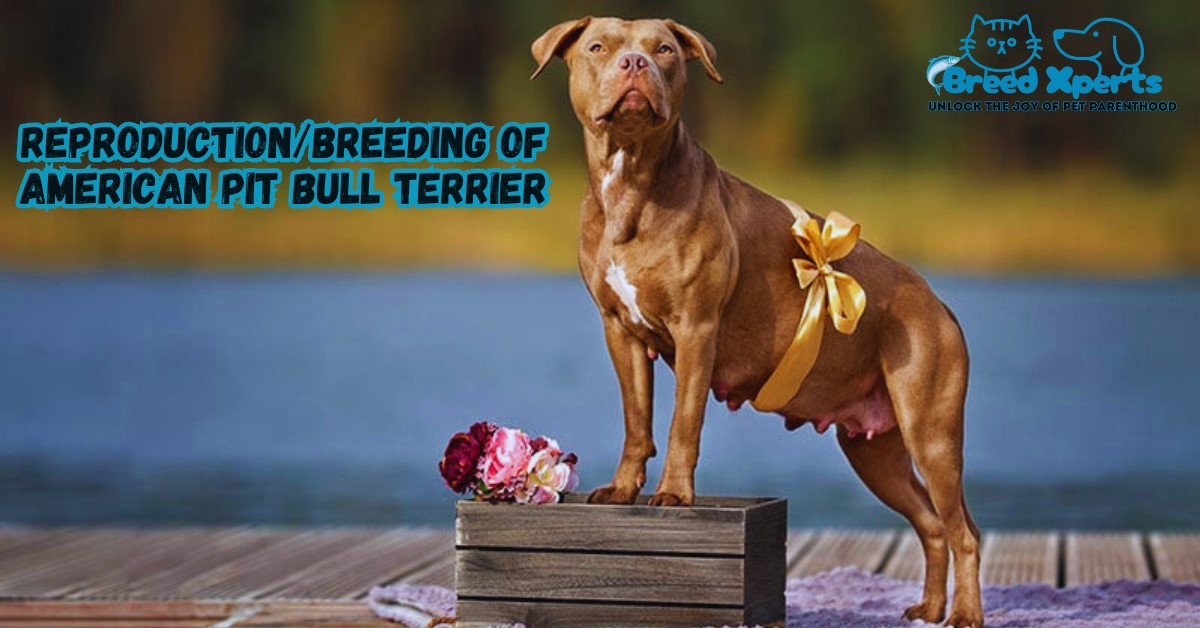
Reproduction/Breeding
Raising American Pit Bull Terriers demands responsibility and understanding. Respected breeders prioritize health, behavior, and breed specifications. They perform health screenings to prevent transmitting genetic concerns such as hip dysplasia or cardiac issues.
Pit Bulls usually have 5 to 10 puppies in a litter. The mother requires adequate care and nourishment both during pregnancy and postpartum. Puppies must remain with their mother for a minimum of 8 weeks to acquire social abilities.
Most of the time, adopting is a superior option to breeding because so many Pit Bulls are in shelters. If you do decide to breed, make sure that you can place each puppy, and make sure that you put the dogs first above everything else.
Further Research Of American Pit Bull Terrier
American Pit Bull Terriers can assist in debunking misconceptions and enhancing their treatment. Research on their conduct and disposition can offer an understanding of their authentic character, assisting in countering unfavorable stereotypes.
Investigating prevalent health problems, such as hip dysplasia and allergies, can result in improved prevention and treatment methods. This guarantees that Pit Bulls have longer, healthier lives while decreasing the strain on owners and shelters.
This can be improved by knowing their specific needs, such as exercise and socialization. Backing research will help promote responsible ownership and build a better future for this oft-misunderstood and lovable breed.
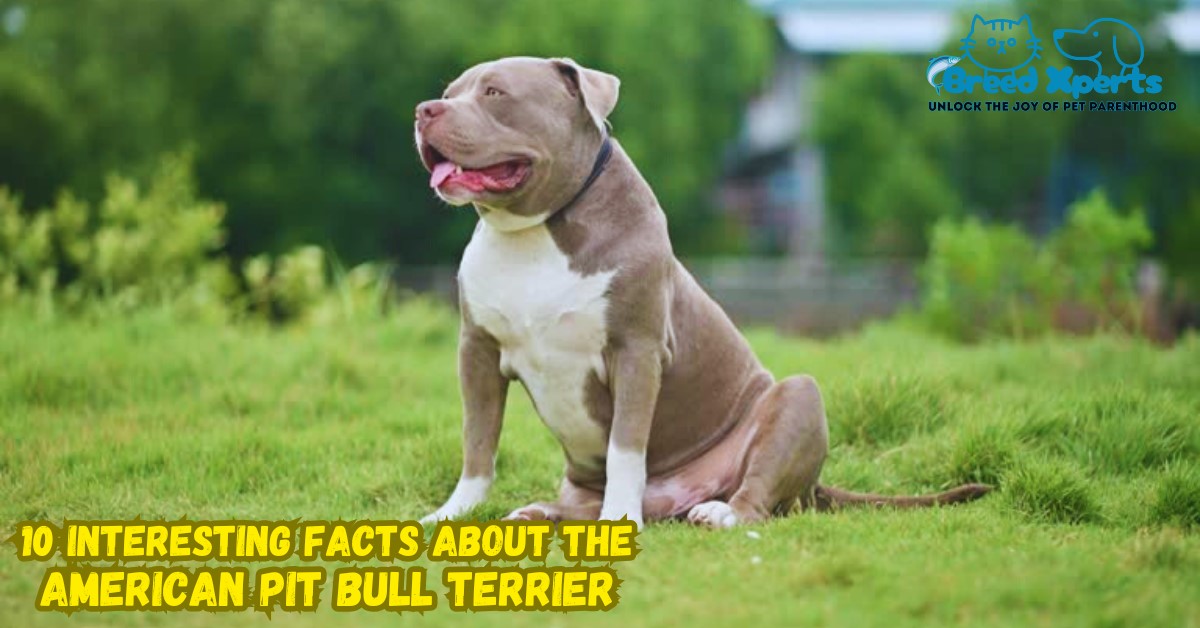
10 Interesting Facts About the American Pit Bull Terrier
- They Were Once Called “Nanny Dogs”
In the early 1900s, Pit Bulls were relied upon to supervise children because of their faithful and gentle temperament with households. - They Have a Rich History
Pit Bulls were developed in the UK by crossing bulldogs with terriers. Immigrants brought them to America, and they grew to represent bravery and faithfulness. - They’re Not a Single Breed
“Pit Bull” is a phrase frequently employed to refer to various breeds, such as the American Pit Bull Terrier, American Staffordshire Terrier, and Staffordshire Bull Terrier. - They’re Highly Intelligent
Pit Bulls learn swiftly and thrive in obedience training, agility, and even therapy tasks when trained correctly. - They’re Natural Athletes
Renowned for their power and nimbleness, Pit Bulls were historically employed in competitions such as weight pulling and possess an innate ability for physical pursuits. - They’re Great with People
Even with their formidable reputation, Pit Bulls are loving and enjoy being around people. They flourish in attention and are recognized for their “wiggle butt” welcomes. - They Have a Strong Bite, But Aren’t Naturally Aggressive
Pit Bulls possess strong jaws, yet they are not naturally aggressive. Their disposition is influenced by upbringing, education, and social interaction. - They’re Often Misunderstood
Pit Bulls encounter breed-specific laws and misconceptions, yet research indicates they are not more aggressive than other well-liked breeds such as Golden Retrievers. - They’re Heroes
Pit Bulls have served as search-and-rescue dogs, therapy dogs, and even as mascots for the military. There is one well-known Pit Bull, Sergeant Stubby, who became a renowned hero of WWI. - They’re Overrepresented in Shelters
On the other hand, many of the dogs found in shelters are Pit Bulls, due to overbreeding and misconceptions. A Pit Bull can save a life and bring immense joy when brought into a home.
All these features outline specifically and often misunderstood human traits that are distinctive features of American Pit Bull Terriers, such as loyalty, intelligence, and affectionate nature.
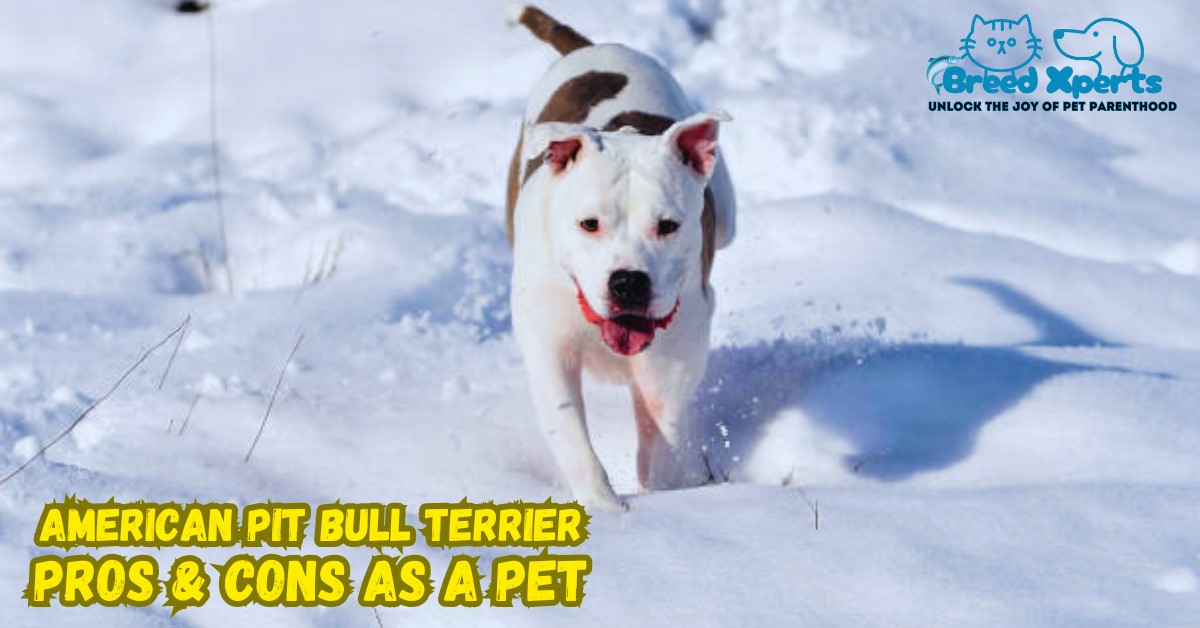
American Pit Bull Terrier Pros & Cons as a Pet
Pros
- Loyal and Affectionate
Pit Bulls form strong bonds with their families and are very loyal. Pit Bulls thrive on human contact and love to snuggle. - Great with Kids
With good socialization, Pit Bulls are gentle and patient with children, thus earning them the nickname “nanny dogs.” - Highly Intelligent
They pick up things fast and perform well in positive reinforcement training, doing well in obedience, agility, and therapy work. - Energetic and Playful
Pit Bulls are playful and love to exercise, making them great companions for active individuals or households. - Protective Nature
They naturally protect their families, making them excellent sentinels. - Low-Maintenance Grooming
Their short coat requires minimal grooming—merely brushing and baths periodically. - Adaptable
Pit Bulls can thrive in various environments, from apartments to houses, as long as they are well-exercised and cared for.
Cons
- High Energy Levels
Their vigor and power necessitate consistent physical activity and cognitive engagement. Lacking it, they might turn bored and damaging. - Strong Prey Drive
Pit Bulls might pursue smaller animals because of their terrier lineage, making supervision around other pets crucial. - Breed Stereotypes
They frequently encounter breed-specific laws and adverse stereotypes, which can complicate the process of renting or insuring a house. - Need for Socialization
Ongoing and timely socialization is critical to prevent behavioral issues. Without this, they can become wary of new people or other animals. - Health Concerns
They can be prone to certain health issues like hip dysplasia, skin allergies, and cardiovascular disease, which may require a vet. - Not for First-Time Owners
Their strength and dominant personality can be a challenge for novice dog owners. They need an assertive and consistent handler. - Potential for Misunderstanding
Their muscular build can intimidate others, and irresponsible ownership can generate poor opinions of the breed.
Conclusion
The American Pit Bull Terrier will be a great companion for the right owner. They are sweet, loyal, and full of personality, but require a serious, experienced owner who can provide proper training, socialization, and attention. A Pit Bull will be a rewarding and loving companion if you are willing to take on the task.
FAQ:
Is a pitbull a safe dog?
No. Pit bulls, as a whole, are great pets for families since they are loyal and protective. It is what makes them scary because when they notice someone who appears to threaten their family, they may act violently. That is not to mean, however, that they would attack anybody.
Is a pit bull terrier a good family dog?
Pit bulls have the potential to be great family pets when nurtured in a caring, responsible setting. They are recognized for their fidelity, loving disposition, and fondness for human companionship. With appropriate training, socialization, and care, pit bulls can live peacefully alongside children and other animals.
What is the weakness of a pitbull?
Pit bulls are prone to knee problems. Pit bulls are active dogs that love playing with toys and just having fun by running about. The pit bull’s muscular build, coupled with its high energy levels, makes it prone to hind leg injuries, tears in the ligaments, and knee problems.
What 2 breeds make an American Pit Bull Terrier?
The majority of pit bull–type dogs originate from the British bull and terrier, a breed from the 19th century created for dog fighting, resulting from the crossbreeding of the Old English Bulldog and the Old English Terrier.
Are pit bulls aggressive?
Certain pit bulls were chosen and bred due to their capability to fight. This implies they might be more prone than different breeds to engage in fights with dogs. It doesn’t imply that they can’t be in the company of other dogs or that they’re inconsistently aggressive. Other pit bulls were intentionally bred for both labor and companionship.
Are pit bulls good with kids?
This breed is recognized for its loving nature and exceptional patience, making them perfect companions for your children. Pit bulls possess an inherent inclination to be devoted, safeguarding, and affectionate, making them excellent companions and pets for children.
Can a pitbull be a house dog?
Pit bulls are mainly domestic dogs. One excellent feature of pit bulls is their short fur, which results in minimal shedding. This is perfect if you prefer not to manage a home filled with hair. Nonetheless, it implies that pit bulls are mainly indoor pets.
What do pit bulls eat?
When deciding what to nourish your American Pitbull Terrier, opt for a diet rich in high-quality protein from animal sources, including beef, chicken, turkey, lamb, duck, eggs, and fish.
Which pitbull is friendly?
Red Nose Pitbulls rank among the most amiable dog breeds when nurtured with affection, attention, and proper education.
What is the main cause of death for pitbulls?
Typically, the three primary reasons for sudden death in dogs of her age are severe heart attacks, brain or cardiac aneurysms, or some form of toxicity. Indeed, all three of these illnesses can lead an animal to show signs of vomiting shortly before death.



